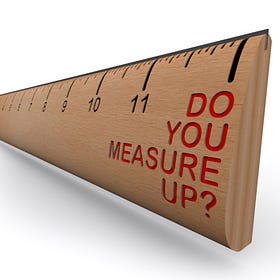“What gets measured gets manipulated”. 1
Is your organisation overly focused on numbers?
How many of these measurements actually make good sense of the organisational phenomena they claim to represent?
What unintended side-effects stem from how your organisation goes about measuring people and performance?
These and other related questions are explored in this 11 minute Future-Fit Culture Frequently Asked Questions video…
The above video references three previous articles on measurement:
Measuring culture
“When you can measure what you are speaking about, and express it in numbers, you know something about it; but when you cannot measure it, when you cannot express it in numbers, your knowledge is of a meagre and unsatisfactory kind.” — Lord Kelvin
Killing Performance Inadvertently
“Man is the measure of all things: of things which are, that they are, and of things which are not, that they are not.” — Protagoras
In my experience this is far more often the case than the more commonly cited “What gest measured gets managed” — the latter often attributed to Peter Drucker (1909-2005). The Drucker Institute deny this, pointing out that Drucker’s view of measurement was much more nuanced, as demonstrated in the advice he gave a CEO in 1990: “Your first role is the relationship with people, the development of mutual confidence, the creation of a community. This is something that cannot be measured or easily defined. But it is not only a key function, it is one only you can perform.” (From the Drucker Institute on Measurement Myopia.)







